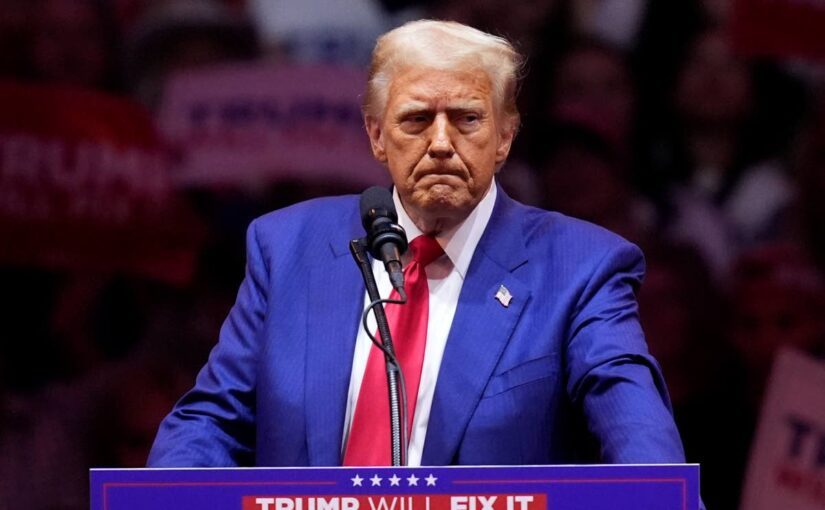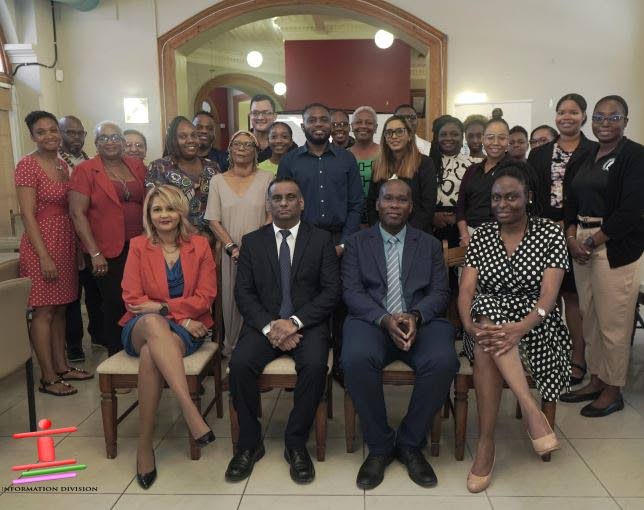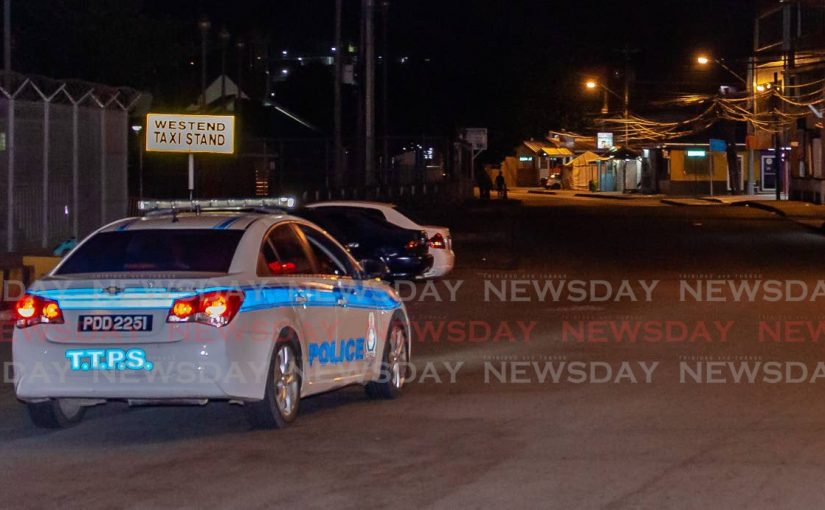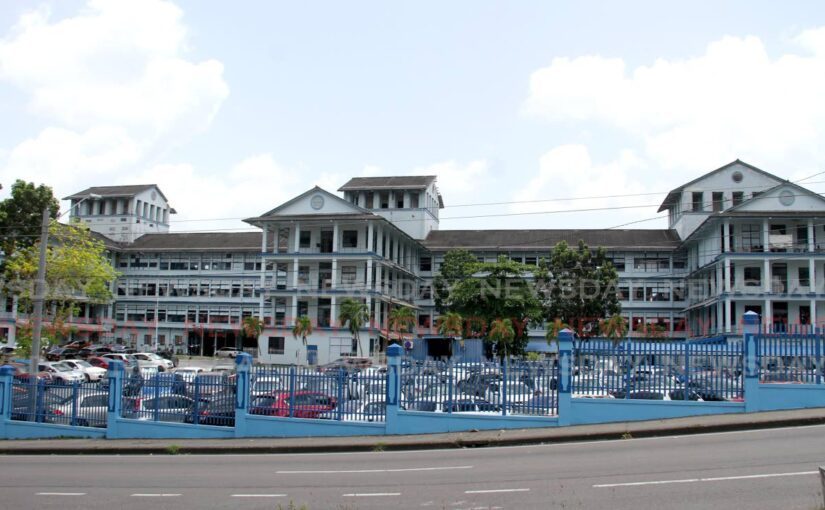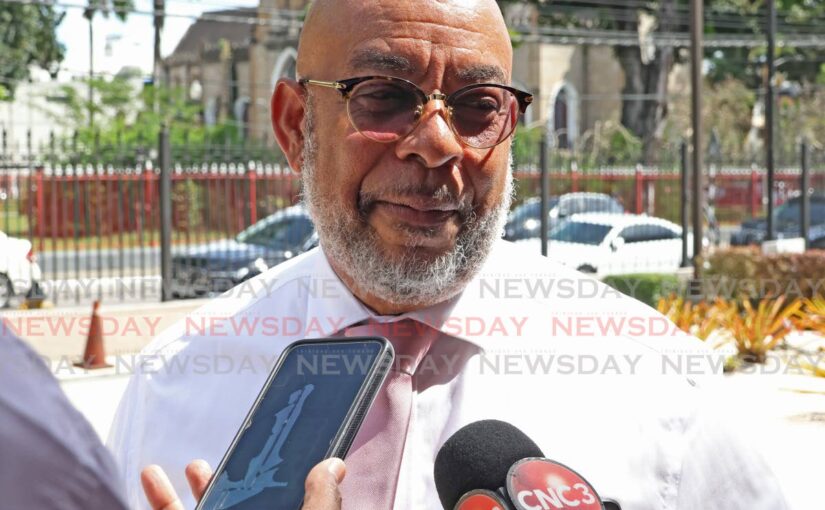

Stephen Mc Clashie -
Labour Minister Stephen Mc Clashie is calling for dialogue between the Port Authority of TT (PATT) and the Seamen and Waterfront Workers Trade Union (SWWTU) amid ongoing protests at the port of Port of Spain over a disputed wage negotiation agreement.
In 2015, the SWWTU represented the port workers in a negotiation with the PATT and both parties agreed on a 12 per cent increase for the period 2014-2016.
The government has refused to accept the agreement because the Chief Personnel Officer (CPO) was not involved in the negotiations.
Former minister of transport Stephen Cadiz said he was never told the CPO needed to be a part of the negotiation, and has called on the government to honour the agreement.
The protests have disrupted operations at the port, with business chambers warning that it is leading to a national crisis.
>
Speaking with the media on November 15 outside the Red House, McClashie said he is “keeping close tabs” on the situation, but added he does not plan to get involved if it starts to affect the lives and livelihoods of the nation.
“Our lifeline really is around goods and services coming into Trinidad. So if it starts to impact the national well-being, then there are a number of options open to the government given that it's an essential service.
“We continue to dialogue at the moment, however, and we are hoping that we don't have to invoke any of the solutions that is offered by the Industrial Relations Act under these circumstances.”
McClashie remained hopeful as he urged all parties to come to the negotiating table with an open mind.
“We need to continue dialogue, because putting 1.4 million people at jeopardy with things like medicine and food, and holding people to ransom is not the way you want to win a battle. You don't want to disenfranchise an entire population to prove a point."So I would say let good sense prevail. Let us continue getting our materials and so on to keep the country afloat and running.
“Labour and management always have to dialogue, and sometimes (the conversation) goes far right before it comes back left and then it centres itself, and that is all around dialogue.”
McClashie also explained government’s stance noting the involvement of the CPO in negotiations has been a standard practice.
Responding to Cadiz’s claim, he said even if the CPO was not involved, questions have been raised about other issues of due process in that negotiation.
He pointed to the state enterprises performance monitoring manual, which he said contains guidelines for negotiations between unions and state-owned entities.
>
“It has been a long-standing practice that before state enterprises engage in final determination that you either pass it through the CPO or the Ministry of Finance. There is a committee that you go to, because you don't want things to be going all over the place and you need to have some level of checks and balances and so on. So I am not sure whether that was the case and whether it happened that way.”
Section 3.1.12 of the 2011 edition of the manual says, “The monitoring of wage and salary negotiations, the establishment and/or revision of pay and other terms and conditions of employment of employees of State Enterprises, including managerial staff and persons employed on contract should fall under the purview of Ministerial Committee for monitoring remuneration arrangements, a sub-committee of Cabinet.”
However, commenting on this, SWWTU leader Michael Annisette said the manual is only policy and cannot trump the law.
“That manual is not a legal document. We are guided by law, and the Industrial Relations Act is the law we are guided by. The act dictates how you are to negotiate and we followed that. It says nothing about the CPO or any committee being involved. Once the company and the recognised trade union sign an agreement, then that agreement must be honoured. If (the government) wants to change that, they need to make legislative changes to turn that policy into law.”
Works and Transport Minister Rohan Sinanan, line minister for PATT, suggested despite the talks, the government does not plan to reverse its decision.
Responding to an urgent question in the House of Representatives on November 15, Sinanan said the government has already received legal advice and determined the agreement did not follow the acceptable practice.
“There is a committee called the Human Resource Advisory Committee. In 2015 it was a similar interministerial committee that was chaired by Minister (of Finance Larry ) Howai."Based on the legal advice from two senior counsel, the PATT and the SWWTU were advised that the (agreement) is not enforceable.”
He suggested the current economic situation does not allow the government to match the previous offer and, despite SWWTU’s rejection of the new offer, talks are still ongoing.
“The PATT has been actively engaged engaging the union to bring about a settlement on this matter without success. Given the impact of the current impasse, PATT has signalled its desires to continue negotiation in good faith, but is challenged with the long-term inflationary economic impact.”
>


